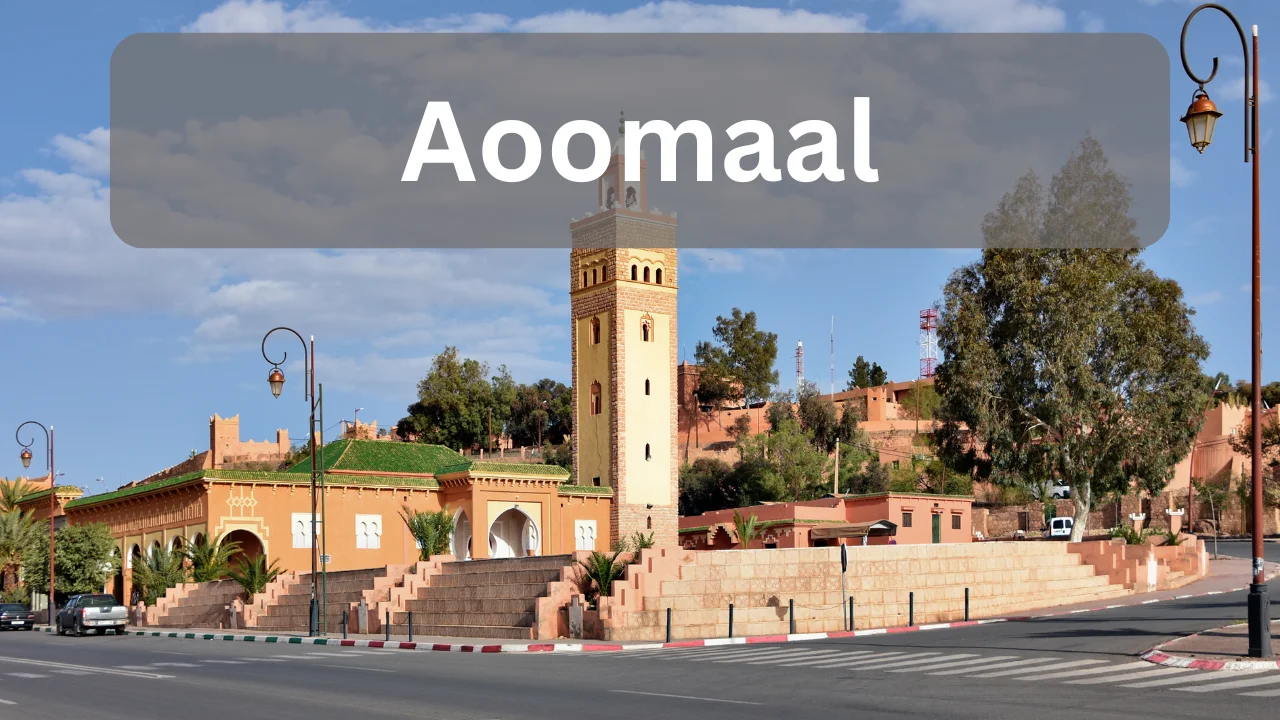The word “aoomaal” has profound origins in Somali culture and Islamic finance. This concept is crucial in today’s globalized financial landscape because of the profound implications it has for social responsibility, ethical investment, and wealth management. Aoomaal has developed through the years, adjusting to new possibilities and problems, although its foundation is in Islamic principles, especially those stated in Sharia law. This article will delve into Aoomaal’s numerous aspects, illuminating its historical importance and modern relevance.
What is Aoomaal?
When money or property is handled fairly, openly, and ethically in accordance with Islamic principles, it is called aoomaal. Financial practices are guided by the tenets of Sharia law, which promote a socially responsible investment environment by ensuring they align with moral values. Aoomaal is a symbol of communal wealth and collective responsibility in Somali culture. It is a time when families and clans come together to support each other. Aoomaal is a word that connects traditional financial ethics with contemporary, environmentally responsible methods of wealth management.
The Role of Aoomaal in Islamic Finance
Sharia-Compliant Finance and Ethical Investment
Islamic finance, which is based on Sharia law, relies heavily on aoomaal. A prohibition of interest (riba), the assurance of risk-sharing, and the promotion of transparency are the three pillars upon which Islamic financial practices rest. Managing assets for the greater good of society is at the heart of aoomaal in this setting, rather than merely amassing wealth.
Zakat and Aoomaal
Muslims are obligated to donate a portion of their wealth to charity as part of zakat, one of the Five Pillars of Islam. Aoomaal promotes the fair distribution of wealth through acts of charity, which is why it is closely associated with this practice. By distributing their Aoomaal to those in need, zakat promotes social justice and community well-being.
Waqf and Wealth Distribution
In Islamic finance, Aoomaal also includes waqf, which means Islamic endowment. To ensure that wealth is used for the collective good, waqf entails setting aside assets or property for religious or charitable purposes. Islamic culture places a premium on the ethical distribution of wealth, and the alignment of Aoomaal with waqf practices emphasizes this role.
Collective Responsibility Finance
When it comes to money, Aoomaal stresses shared accountability. An essential principle of Islamic finance is the promotion of shared risk and reward. Aoomaal emphasizes the interdependence of wealth and social responsibility by promoting community prosperity and economic sustainability rather than individual gain.
Aoomaal, or Islamic principles, are also applied to contemporary asset management practices, such as screening investments thoroughly to make sure they follow Islamic law. For example, you should put your money into renewable energy and ethical manufacturing rather than companies that deal in gambling or make alcoholic beverages since these are considered to be unethical.
Aoomaal in Somali Culture: A Tradition of Community Support
Somali Communal Wealth
The long-standing practice of communal wealth management is mirrored in Aoomaal in Somali culture. In times of hardship, members of the same family or clan would often combine their resources to help those in need. To make sure that nobody got left behind when times got tough, this communal approach to wealth prioritized social solidarity and mutual help.
The Role of Aoomaal in Somali Clans
Aoomaal, in which members of the same clan pool their resources, has been practiced by Somali families for generations. Not only did this practice ensure the community’s financial stability, but it also fortified clan ties and helped those in need.
Cultural Responsibility and Wealth Management
More than simply keeping track of money, aoomaal is a cultural obligation in Somali society to provide for one’s loved ones and the community at large. In a community where resources are limited, social cohesiveness and trust are crucial, and this type of wealth distribution promotes both.
Environmental Stewardship in Aoomaal
Aoomaal has evolved into more than simply a funding mechanism in recent years. A greater understanding of the need of safeguarding natural resources has led to its evolution to incorporate environmental stewardship principles. Sustainability and responsible management of resources are values that Aoomaal upholds in both Somali culture and Islamic finance.
Aoomaal and Community Welfare
Sharing one’s good fortune with one’s community is central to Aoomaal, as it is in Islamic and Somali tradition. Aoomaal is a means of directing wealth toward the common good, whether via zakat, waqf, or direct donations.
Modern Interpretations of Aoomaal in Finance
Socially Responsible Investing
Aoomaal has become a byword for SRI in today’s international financial markets. More and more, investors are looking for opportunities that they can invest in that also help them live out their values. Those interested in socially responsible investing will find a home with Aoomaal because of its focus on ethical wealth management.
Sustainable Wealth Management
Aoomaal offers a framework for balancing wealth creation with environmental and social responsibility, which is a crucial concern in modern finance. Aoomaal promotes sustainable wealth management practices that safeguard future generations by giving priority to investments that contribute to societal well-being in the long run.
Sharia Law and Aoomaal in Contemporary Finance
Investors looking for ethical alternatives to traditional financial products have driven the growth of Sharia-compliant finance in global markets. Aoomaal provides a fresh perspective on wealth management that stays away from immoral activities like interest-based lending and risky investments, thanks to its Sharia law roots.
Financial Practices in Islamic Culture
Aoomaal and other Islamic financial practices aim to make the world a more equitable and just place. The ethical principles that form the basis of Islamic finance are exemplified by Aoomaal, which guarantees that wealth is managed in a manner that benefits both the individual and the community.
Bridging Tradition and Modern Financial Ethics
Aoomaal connects the dots between more conventional investment strategies and more traditional ideas of financial ethics. It is a potent tool for modern investors because its principles of equity, openness, and social responsibility are congruent with modern worries about income disparity and environmental degradation.
Frequently Asked Questions
What is the significance of Aoomaal in wealth distribution?
Aoomaal is central to the concept of wealth distribution in both Islamic finance and Somali culture. It ensures that wealth is used to benefit the broader community, whether through zakat, waqf, or other forms of charitable giving.
How does Aoomaal reflect collective responsibility in Somali society?
In Somali culture, Aoomaal represents a collective responsibility to support one’s family and clan. By pooling resources and providing financial assistance to those in need, Somali clans strengthen their social bonds and ensure the welfare of their members.
What is the role of Aoomaal in Islamic financial ethics?
Aoomaal plays a critical role in Islamic financial ethics by ensuring that wealth is managed in accordance with Sharia law. This includes promoting fairness, transparency, and social responsibility, as well as avoiding unethical practices like interest-based lending.
How does Aoomaal promote socially responsible investing?
Aoomaal encourages socially responsible investing by prioritizing investments that align with ethical principles. This includes avoiding businesses that engage in harmful activities and instead focusing on industries that promote social good, such as renewable energy and ethical manufacturing.
How does Aoomaal influence environmental stewardship?
Aoomaal has evolved to include principles of environmental stewardship, reflecting a growing awareness of the need to protect natural resources. By promoting sustainable investment practices, Aoomaal encourages the responsible use of wealth to benefit future generations.
Conclusion
Aoomaal stands for collective responsibility and ethical wealth management; it is more than simply a financial concept. Aoomaal has developed from its Islamic financial and cultural origins to address the problems of contemporary finance; it now offers a model for ethical investment and long-term wealth preservation. Aoomaal stresses the significance of balancing material success with ethical principles and community welfare through zakat, waqf, or communal support, all of which are forms of wealth that are used for the greater benefit.
The world is still trying to figure out how to deal with problems like wealth inequality and environmental degradation, but Aoomaal provides a modern take on financial ethics that will last. A more just and sustainable financial future can be built upon its principles of transparency, collective responsibility, and fairness.

Stephen Norman is a skilled and accomplished writer known for his versatility across numerous niches. He consistently delivers insightful and engaging content in various fields. Stephen’s extensive experience and profound expertise make him a highly sought-after author in the digital writing sphere.











